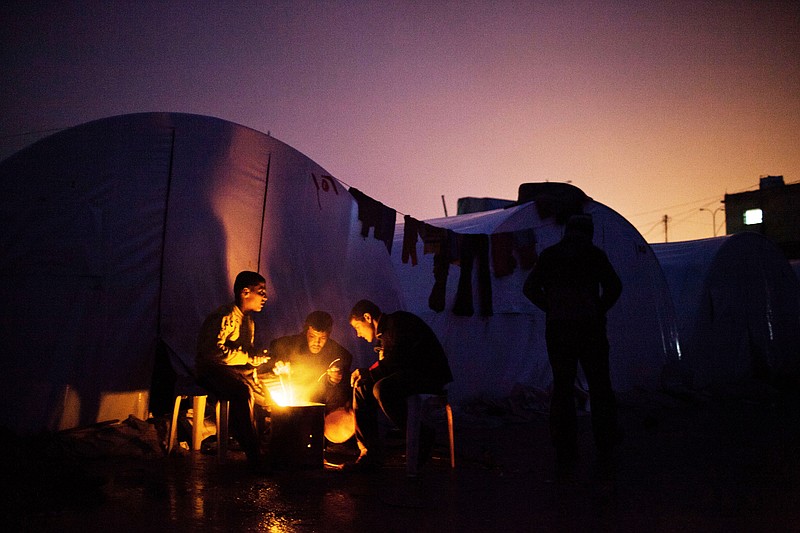BEIRUT (AP) - Syria's vice president has acknowledged that the army cannot defeat the rebel forces trying to topple the regime and called for a negotiated settlement to save the country from ruin.
The rare, candid comments by Farouk al-Sharaa, a longtime close aide to President Bashar Assad's family, suggested his embattled regime may be contemplating an exit strategy as rebel forces move closer to the capital Damascus. He spoke in an interview published Monday by Lebanese newspaper Al-Akhbar.
"I don't see that what the security forces and army units are doing will lead to a definitive victory," al-Sharaa was quoted as saying in the interview conducted in Damascus.
"All these opposition forces can only conclude the battle to topple the regime if their goal is to push the country into chaos and a cycle of violence that has no end," he added.
Al-Sharaa pushed for a negotiated political settlement that includes the formation of a national unity government with wide jurisdiction.
His comments coincided with a step-by-step peace plan for Syria outlined by Iranian officials on Sunday. It would be capped by Syrian elections that presumably could usher in a new leader in Damascus.
Tehran is Assad's closest and perhaps only remaining regional ally and the initiative suggests its embrace of the Syrian president could be cooling.
The initiative - while almost certain to be rejected by Syrian rebel factions - marks one of the clearest signals yet that Iran's leadership is looking to hedge its bets and remain a player in Syrian affairs if Assad is toppled.
It was unclear whether al-Sharaa's comments were timed to coordinate with the Iranian initiative.
"Despite his rhetoric, Bashar Assad may now be contemplating an exit strategy - one which would allow him to seek refuge abroad with his neck intact," said Anthony Skinner, an analyst at Maplecroft, a British risk analysis company.
In Washington, U.S. State Department spokesperson Victoria Nuland said the statement by al-Sharaa "speaks to the pressure that the Syrian regime is under."
"Regrettably, however, it hasn't changed the regime's behavior, including the brutality it's inflicting on its own people," she added.
Al-Sharaa, 73, a longtime loyalist to the Assad family, has been a controversial figure since the start of the uprising.
He appeared in public in late August for the first time in weeks, ending repeated rumors that he had defected. The regime has suffered a string of prominent defections in recent months, though Assad's inner circle and military have largely kept their cohesive stance behind him. Assad and his inner circle are predominantly Alawites, a minority sect that is an offshoot of Shiite Islam. The opposition is dominated by the majority Sunni Muslims.

